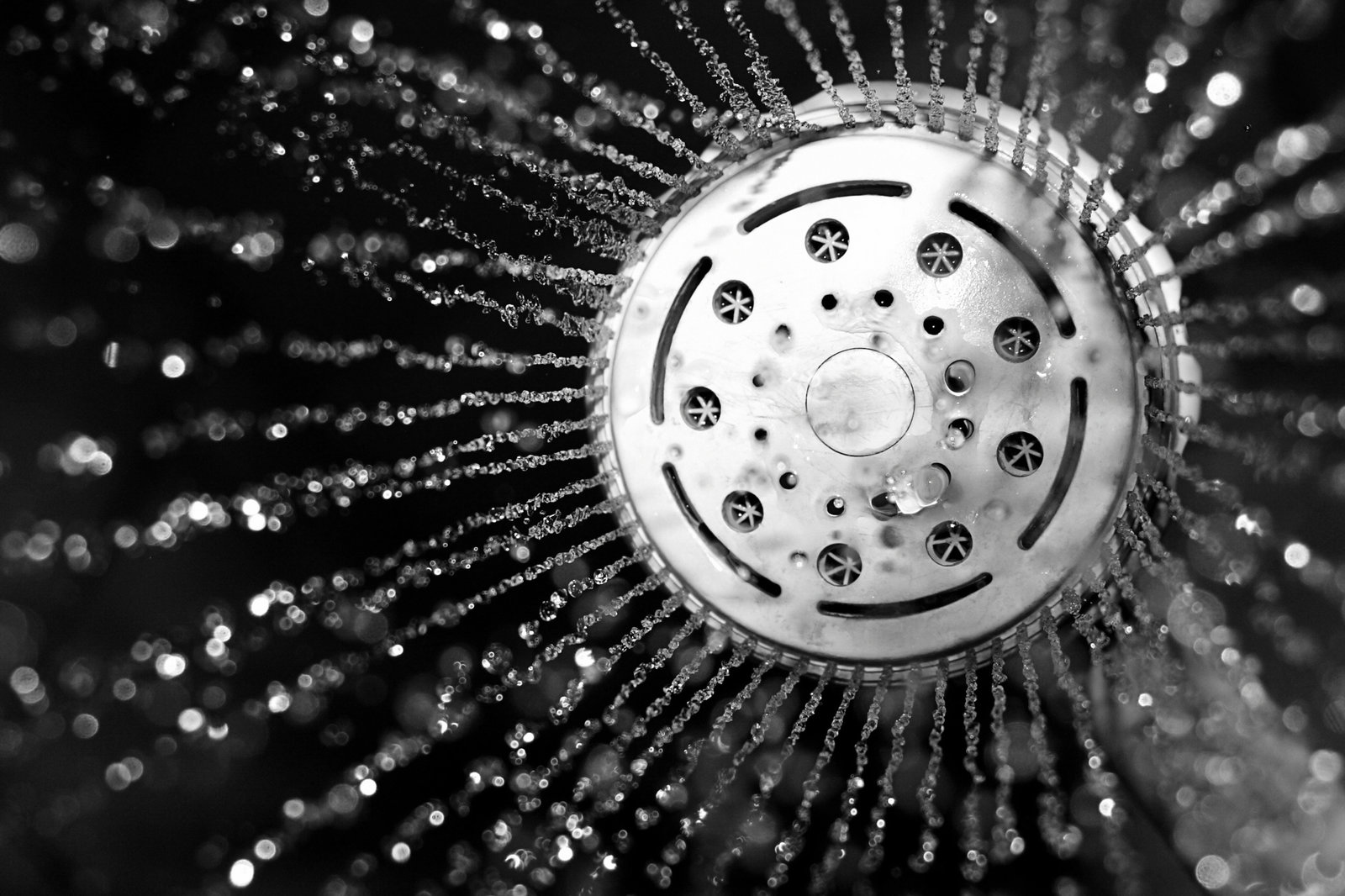在卫生时代,一位作者提出了少洗澡的理由
在卫生时代,一位作者提出了少洗澡的理由
Showers feel fabulous — but how how frequent is too frequent for skin ecology?
淋浴感觉棒极了——但是对于皮肤生态系统来说,多频繁洗澡才算太频繁呢?
James Hamblin is tired of being asked if he's smelly.
詹姆斯·汉布林厌倦了别人问他是否有臭味。

Hamblin, a physician and health reporter, has been fielding the question since 2016, when the article he wrote about his decision to stop showering went viral. The piece outlines compelling reasons why one might want to spend less time sudsing up: Cosmetic products are expensive, showering uses a lot of water, and the whole process takes up valuable time.
汉布林是一名医生和健康记者,自从2016年他写的一篇关于自己决定不洗澡的文章在网上疯传以来,他一直在回答这个问题。这篇文章概括了人们可能想要少花点时间泡澡的令人信服的理由:化妆品很贵,洗澡要用很多水,整个过程占用宝贵的时间。
Perhaps most importantly, bathing disrupts our skin's microbiome: the delicate ecosystem of bacteria, fungi, mites and viruses that live on (and in) our body's largest organ. Most of these microbes are thought to be benign freeloaders; they feast on our sweat and oils without impacting our health. A small number cause harmful effects, ranging in severity from an irksome itch to a life-threatening infection. And some help us out by, for example, preventing more dangerous species from taking up residence.
也许最重要的是,洗澡会破坏我们皮肤的微生物群:细菌、真菌、螨虫和病毒组成的脆弱生态系统,它们生活在我们身体最大的器官表面(和里面)。这些微生物大多被认为是良性的白食者;它们以我们的汗水和油脂为食,而不影响我们的健康。少数会造成有害影响,严重程度从令人讨厌的瘙痒到危及生命的感染。还有一些帮助我们,例如,防止更危险的物种居住。
Researchers are in the early days of developing the full picture of just how substantially this diverse living envelope influences our overall health, and many of their findings suggest that the microbes on our skin are even more important than was previously understood. Skin has long been considered to be our first line of defense against pathogens, but new studies suggest that the initial protection may come from the microbes that live on its surface.
研究人员正处于全面了解这种多样的生命结构对我们整体健康影响程度的早期阶段,他们的许多发现表明,我们皮肤上的微生物比我们之前所了解的更为重要。长期以来,皮肤一直被认为是我们抵御病原体的第一道防线,但新的研究表明,最初的保护可能来自皮肤表面的微生物。
Meanwhile, the health care and cosmetics industries are already at work developing new skincare products that claim to cultivate our skin's population of beneficial microbes, and banish the troublemakers.
与此同时,医疗保健和化妆品行业已经开始开发新的护肤产品,这些产品声称可以培养我们皮肤中的有益微生物的数量,并驱逐这些麻烦制造者。
But, Hamblin says, most of the time when people learn that he hasn't showered in five years, they just want to know if he stinks. He dutifully explains that he still washes his hands with soap frequently.
但是,汉布林说,大多数时候,当人们知道他已经5年没洗澡了,他们只是想知道他是不是很臭。他尽职尽责地解释说,他仍然经常用肥皂洗手。
We spoke to Hamblin, who is a staff writer and the cohost of the podcast Social Distance for The Atlantic, about the benefits and social dynamics of showering less, and the coming wave of microbially-optimized cosmetics.
汉布林是一名特约撰稿人,也是播客《大西洋社交距离》的联合主持人。我们采访了他,关于少洗澡的好处和社交动态,以及即将到来的充分利用微生物的化妆品浪潮。
Your book sets out to challenge some cultural norms about hygiene. What types of cleansing do you think are overdue for reexamination, and which are critical?
你的书挑战了一些关于卫生的文化规范。您认为哪些类型的清洁需要重新检查,哪些是重要的?
There's a distinction between "hygiene" and "cleansing rituals" that's especially important in this moment. "Hygiene" is the more scientific or public health term, where you're really talking about disease avoidance or disease prevention behaviors.
在这个时刻,“卫生”和“洁净仪式”之间有一个特别重要的区别。"卫生"是一个更科学或公共卫生的术语,它实际上是指避免或预防疾病的行为。
But a lot of the other things that we do are class and wealth signifiers — like combing your hair, or whitening your teeth, or wearing deodorant — which actually have nothing to do with disease avoidance or disease transmission. They're really much more of a personal or cultural preference. And that's where people are experimenting with doing less.
但我们做的其他很多事情都是阶级和财富的象征,比如梳头、美白牙齿、使用除臭剂,其实这些都与疾病的避免或疾病传播无关。他们实际上更多的是个人或文化偏好。这就是人们尝试少做的地方。
Why do you think that some of these cultural practices deserve to be reexamined?
为什么你认为这些文化实践值得重新审视?
So many reasons. We're spending a lot of money (or at least we were pre-pandemic, I don't have new data) on products in this enormous industry-complex of self-care, skincare, hygiene, and cosmetics — which is barely regulated, which is a huge and important part of people's daily lives, which people worry a lot about, which people get a lot of joy from, which people bond over, which people judge, and which causes a lot environmental impacts in terms of water and plastic.
很多原因。在这个庞大的行业中,我们花了很多钱(或者至少我们是在流行病前花了很多钱,我没有新的数据),包括自我护理、护肤、卫生和化妆品的产品,这些几乎没有受到监管,这是人们日常生活中巨大而重要的一部分,人们对此非常担心,人们从中得到了很多快乐,人们对它产生了共鸣,人们对它进行了判断,从水和塑料的角度来看,它对环境造成了很大的影响。
Some people are misconstruing the central thesis of your book as "shower less like I did." And that's not what you're advocating. So is there a thesis statement or call to action in your mind?
有些人误解了你书的中心论点是“像我一样少洗澡”。这不是你所提倡的。那么,在你的脑海中有一个主题陈述或行动号召吗?
I think that many people — not everyone — could do less, if they wanted to. We are told by marketing, and by some traditions passed down, that it's necessary to do more than it actually is. Your health will not suffer.
我认为很多人——不是每个人——如果他们愿意的话,可以少洗澡。市场营销和一些流传下来的传统告诉我们,有必要洗更多次数的澡。你的健康不会受到影响。
If you could get by doing less without suffering social or professional consequences, and [your routine] isn't bringing you any value or health benefit, that's the space where I say, "Why not? Why not try it out?"
如果你可以通过少洗澡而不承受社会或职业上的后果,而[你的日常生活]并没有给你带来任何价值或健康益处,那么我就会说:“为什么不呢?”为什么不试试呢?”
Where do you stand on the most controversial question on the Internet: washing your legs in the shower?
在网上最具争议的问题上:洗澡的时候洗腿,你的立场如何?
Personal preference. From a scientific hygiene perspective, it's an elective practice. It might be something people enjoy doing, or feel better for having done. If it brings you value, then it's absolutely worth doing.
个人喜好。从科学卫生的角度来看,这是一种选择题。它可能是人们喜欢做的事情,或者是做了之后感觉更好的事情。如果它能为你带来价值,那么它绝对值得去做。
- 频道推荐
- |
- 全站推荐
- 推荐下载
- 网站推荐


















